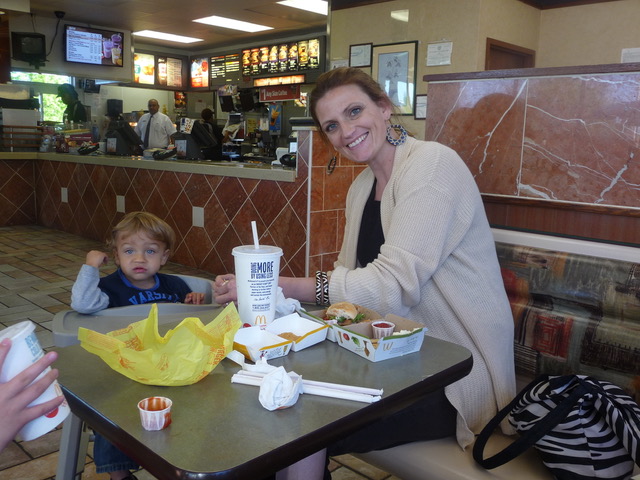Twelve days after getting out of my second stint in a 30-day inpatient rehab facility, I woke up on the concrete floor in a jail cell. With echoes of screams and cries from the back seat of the car still ringing in my ears, I sat there trying to piece together that DUI debacle—how I picked my daughter up from preschool in a blackout, how I pulled the car over to “rest” a minute, how I tried desperately to come out of that alcoholic fog and make everything go back to being okay. But mainly I just couldn’t understand why in the hell I decided to drink again. Jesus, I had just crawled my way out of that nightmare and now there I was again…only worse.
I’m certainly not the smartest person in the room, but I know a thing or two about rehabs. In the course of my sobriety journey, I’ve been to seven of them, ranging from the fancy to the basic, from one side of the country to the other. And now, with a couple years of good quality recovery under my belt, I’m putting the pieces together.
The first time I got sober in 2002, I just walked into a meeting and that was it. I was done. But addiction is progressive and chronic, and soon I slipped into a space filled with 24-hour drinking that was jeopardizing the safety of my children. And I was incapable of figuring out how to stay away from alcohol long enough to even collect a decent number of days. Believe me, I tried every time. The damage I was causing to my family and to myself had grown so out of control that even my recovery community had lost hope in me. I had to get out in order to see what I was even doing.
What have I learned from my experience? Enough to compile these questions for anyone currently in a 12-step-based rehab to ask themselves:
What’s Your Expectation?
I walked into the doors of rehab the first couple times thinking I was going to “find myself” in there. Ha! On my best days, I found the guts to look at what a mess I was and had the courage to be honest about it—to cry about it or get pissed off about it. I had a thousand pounds of bricks built up around me to keep everyone from looking at myself. Hell, we all did. Most of the things we found out about ourselves and each other were the exact same things that sent us running for a drink or a drug.
But rehabs don’t offer cures. Ever. It’s best for everyone involved to keep expectations realistic and that includes the family at home. If you think you’ll walk out with answers to all your problems, trust rebuilt in relationships and a guarantee you’ll never drink or drug again, good luck with that.
What’s Your Goal?
Rehabs are not a quick fix, and good gracious, they are full of distractions. It’s easy to get sucked into the gossip circle-jerk out at the smoking hut or hunt down the most eligible hottie of the opposite sex if you’re desperate enough. It happens everywhere. And even if you’re not participating, you have to sit and listen to the dramatic bullshit that unfolds in the aftermath. Here’s the deal: you are likely not going to meet your lifelong friend circle in rehab, so my recommendation is not to going into it trying to win popularity. At one of my stays, a counselor said to the entire group of us, “Look at the person on your left and introduce yourself. Now do the same to the one on the right. Then say you are sorry. Because only one of you will stay sober.”
Of course, none of us thought it would be us.
So make a goal to set a foundation. Do what you can to remember why you are there. Strange as it sounds, it’s easy to forget some days. Time will drag by slowly but before long, if you’re doing it right, your time will be up. Supposedly, you are ready to go back to the scene of the crime, to walk right back to where you came from…except this time you’re choosing to do it clean and sober. Make sure that rehab has done everything in its power to help you in that transition.
Are You Ready for Anything?
Any good quality rehab is going to tell you that you need more help—that 30 days just isn’t going to cut it. And at that point you will have some choices to make. By the time I got to my seventh rehab, I knew this would be coming, but I still stood out in the parking lot defiantly smoking one last cigarette before half-assing an agreement with my husband that I was willing to do whatever was suggested. I was ready, but I didn’t like it.
I’ve tried different plans upon leaving—I’ve gone home after 30 days with a plan. I’ve stayed at a facility for extended treatment for an extra six weeks, and I’ve gone afterwards to a more intensive treatment across the country for an extra 10 weeks. Every choice was a gut-wrenching, learning experience.
So I say don’t be afraid to make a commitment, but for God’s sake, stick it out. You will probably get incredibly uncomfortable. Any time I saw someone throwing an all-out blood curdling meltdown, I got really excited because I knew they were onto something. It was the bottled-up people-pleasers that scared me—probably because I saw too much of myself.
I used to have a sticker on my mirror that said, “You’re looking at the problem” but my kids didn’t get it so I took it down. Obviously, the ultimate answer here is that I am responsible for my sobriety. No one was pouring the drinks down my throat. But good God, can treatment centers learn anything from people like me? I promise you, I am not the only one who’s had to go back or who’s relapsed after treatment.
Being a mother of four kids put me in a minority at rehabs. I had a breast pump at one of them, so an aftercare program filled with messages of sober living homes was out of the question. I always understood the importance of a 12-step program, but rarely felt anyone was listening when I spoke about the reality of the newborn, the toddler, the preschooler, the daughter in elementary school, and the overworked and exhausted husband all waiting for me to get home. My treatment teams continued to preach nightly AA meetings, counseling sessions, an intensive outpatient program during the weekdays. Oh, and self-care. Meanwhile my poor kids just wanted their mom back and my heartstrings always broke at the sight of them.
Treatment centers can only do so much. They are limited by insurance demands, faculty qualifications, industry standards and patient participation. But if your aftercare advisor is searching Google for a therapist recommendation for you, there’s a problem. If your meds are way out of whack and you can’t see a doctor for a week, there is a problem. And if your small group looks and sounds like an out-of-control dysfunctional family reunion, your counselor sucks.
Not every issue is going to get addressed, but you still have the right to be your own advocate. Make an appointment to talk to the top dog if necessary. I did. But don’t forget that you don’t make the rules (I hated that part).
What a collection of knowledge I got from all that failure. Out of all of it, the one thing I’d pass on above everything else, the best gem I ever got, was from my very last rehab. It was this: No matter what else you do on your first day out, if it’s a 12-step based rehab and they recommend 12-step meetings, just go to a meeting. No exception. Leave your rehab and go straight there. I finally did that, this last time. And I certainly haven’t regretted it.



